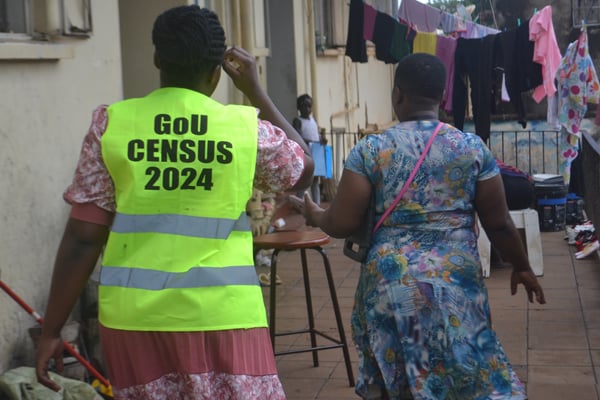Power might belong to the Ugandan people, after all
Monday June 24 2024
Even those many citizens who have never opened the Constitution to read a single line know that Chapter One famously opens with the assertion that “All power belongs to the people! ILLUSTRATION | JOSEPH NYAGAH | NMG
Although it will soon be three decades since the current Constitution of Uganda was enacted, it is possible that less than 10 percent of the 50 million citizens have seriously read the sacred document. (We had a couple of constitutions before, which got scrapped, and about a decade of military rule, when we didn’t need one.)
But even those many citizens who have never opened the Constitution to read a single line know that Chapter One famously opens with the assertion that “All power belongs to the people!”
To cynics, this may sound rather theoretical, but developments in the past couple of months suggest that power might belong to the people, after all.
Politics is about power and political contestation in Uganda has always involved political parties, cultural institutions, armed forces and religious leaders. All these purport to act in the people’s interest, whose mandate is sought periodically through elections — after their being influenced in different ways including by genuine promises, lies, alcohol and intimidation.
Read: BUWEMBO: It’s disheartening to see Kenya acting so helpless
But, in recent weeks, with no election in sight for nearly two years, the big players are keen to get the peoples’ approval.
It could have started with a humourous university don who spends much of his time drawing cartoons, and a petite pretty journalist-turned-lawyer, who took to social media and rallied the public attention to a matter everyone knew so well that it had become rather boring: Corruption.
It seems even public servants who had given up and accepted to live and work in the stench of the corruption sewer decided to throw in their lot with the people and started leaking information about the graft around them. Soon, social media got flooded with cases of grand robbery committed by (officially) respected personalities.
Long story short, public disgust got palpable. The approaching national budget invigorated revenue authorities to collect tax and hit their targets, which suddenly got everyone asking what taxes are for, as stories of corrupt government officials abounded.
The wave of public anger was non-discriminatory, even angrier at opposition politicians’ appearing more insensitive — even callous — in their display of unhealthy appetite for funds than their ruling party counterparts.
Indeed, a deep wound inflicted early in the melee was in the neck of the main opposition party, National Unity Party (NUP), whose representative on the Parliament Commission (the top management team of the Legislature) took a sip — some say gulp — in form of a “service award” for his stint as the Leader of Opposition in Parliament, then worth $150,000.
Immediately and effectively, NUP got divided between the headquarters officials and many of its members in parliament. NUP withdrew its mandate from the “award-winning” commissioner, though he retained the post, as the party has no power to remove him after sponsoring him.
Legalistic arguments started flying around from the different camps, but the public wasn’t interested. They were just disgusted.
Read: BUWEMBO: Why obsess more about a toy car in church than graft?
Consequently, every camp found the need to put their case to the court of public opinion, as clever explanations found no willing ear.
The Executive accused MPs of extortion from government accounting officers (who are required to bribe — don’t fall off your chair but up to 20 percent of their departments’ budgets — to get them approved by the House) while the Legislature accused accounting officers of inducing MPs with unholy offers.
With nobody wanting to be party to a situation where a fifth of the national budget is stolen upfront before it is even presented, all camps are tabling accusations and denials before the judge — the hitherto ignored public whose opinion hasn’t mattered for years.
The public wants blood and the ruling party, which is in charge of public prosecution, has not wasted the opportunity; the state machine swung into action. “Honourable” members of parliament started getting picked up and charged with theft, in whichever glorious wording the charges were framed.
Meanwhile, the clock is ticking away to the next general election of January 2026. Will the state have sent enough honourable suspects to prison by then? For now, let the public enjoy the feeling of mattering.
Buwembo is a Kampala-based journalist. E-mail:[email protected]
